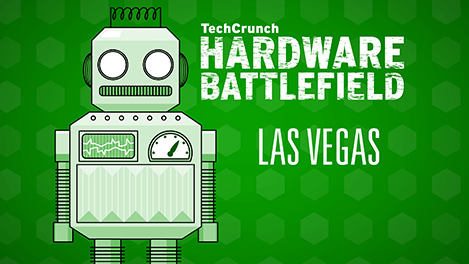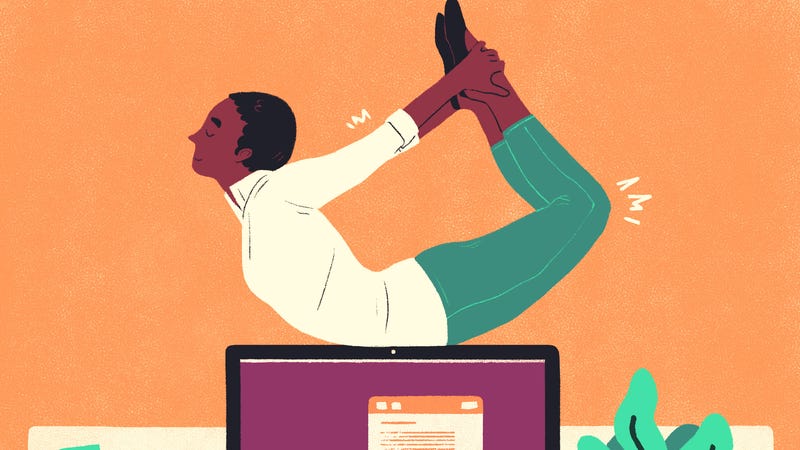 There are 5,200 results if you search the words “ Sims torture chamber ” on YouTube.
There are 5,200 results if you search the words “ Sims torture chamber ” on YouTube.
Among these are videos of virtual people locked in rooms with mirrored walls, trapped in skydiving simulators with blocked exits, and – of course – flailing in swimming pools from which, after the removal of the ladder, the Sim cannot escape.
“PLEASE NOTE THAT I WOULD NORMALLY NEVER DO THIS KIND OF STUFF WITH MY SIMS!! I ONLY GOT BORED OF THE SIMS 1!!!” reveals a disclaimer on one video created by the unnervingly-named user StarSweetieSqueaker , who forced eight Sims to wet themselves before setting them alight in a single room decorated with circus wallpaper.
Eight sleep-deprived Sims set alight in a windowless room, via YouTube
StarSweetieSqueaker is probably not a deranged psychopath living out sick, twisted fantasies of murder and torture. They are, most likely, an ordinary person – or at least, an ordinary The Sims player.
Sandra Donselaar runs the tutorial website sims-online.com and reveals that the page “ The Sims 4 Death Guide, Killing your Sims ” is the second most-visited this month (the first being the cheats page). “The total unique pageviews for this guide are 287,222 and 90 per cent of them landed on this page by searching through Google,” she says.
It is clear, then, that many people enjoy murdering their Sims. The question is: why?
“When people are immersed in virtual environments, a phenomenon called the disinhibition effect may be evoked,” says Berni Good, the founder of Cyber Psychologist, a team of academics specialising in the psychology of the gamer. “In this state, people do not perceive any authority and even if their names are clearly apparent they perceive anonymity. Thus, the normal social interactions people have face-to-face fall to the wayside and people may act in virtual worlds in a way they would not in the real world.”
A Sim being electrocuted, via Imgur
Adam, a 16-year-old student who wishes to be identified only by his first name, explains his motivations for acting sadistically in The Sims. Last month, he adopted a Sim child, locked him in a glass room in the garden, forced him to watch a pool party going on around him, and slowly starved him to death.
“I guess my motivations were boredom and a desire to play the game outside of conventional play styles,” he says. “I suppose it was also a way to relieve some anger that I had been feeling that day, if I recall correctly. Just a harmless way of taking it out on something. .. It didn’t have any effect on a real person, and I’m certainly not going to torture a kid in real life because I did it in a computer game.”
Good notes that this behaviour can be psychologically beneficial. “Taking out one’s aggression out in videogames may be a safe way to deal with difficult thoughts and allows the player to have elements of control that they could not display in the real world,” she says.
Five identical Sim toddlers left to die, via YouTube
I understand Adam’s motivations. After purchasing a copy of Sims 4 last week, I played for an hour, found an in-game boyfriend, engaged in some titillating WooHoo and then grew bored with the traditional way of playing the game. That is how I found myself, without a single trace of emotion, uttering the words: “I want to cheat on him and set him on fire.”
But is this a worrying insight into my psyche? Are all humans fundamentally bad? Does the way we play The Sims prove that none of us can be trusted with power?
“There is a concern about social learning theory, ‘I see I do’,” says Good, referring to the age-old debate about whether violent video games inspire children to act violently in the real world. “But the research does not suggest those people playing violent games are any more violent in the real world than those not participating in this kind of play.”
I personally believe that murder in the The Sims is enjoyable because it differs from murder in games that are intended to be violent. When you stab someone in Grand Theft Auto or mutilate someone in Skyrim , you are fulfilling the gameplay and advancing with the game as was intended. When you force someone to swim themselves to death in The Sims , you are simultaneously breaking the rules, getting creative, and exploring the boundaries of the game. These same experiences are gained with many other nostalgic simulator games intended for children, including Theme Hospital and Rollercoaster Tycoon.
Sims, dressed as hot dogs, being forced to work in a sweatshop creating art, via Imgur
Ben Brock, a 27-year-old who works in publishing, experienced this while playing a game called Zoo Tycoon as a child. Brock discovered that he could make his zoo visitors be mauled by animals, and he could click on an individual to read their thoughts. “They would actually repeatedly think to themselves, ‘Oh no! I’m being mauled by Bengal Tiger 7!‘ if such a thing happened to them,” he says.
Since the visitors couldn’t actually die, Brock enjoyed watching them running around and screaming, and trapping them when they tried to escape. “God, I should probably be locked up,” he says.
Brock agrees with my thesis that it isn’t so much about the violence as it is about experimenting with the game, saying he was never a “gamer” or into outwardly violent games. “Videogames, even open-ended ones, often feel so restrictive – there’s only so many buttons you can press – so playing them against the grain feels very freeing,” he says.
Good concurs. “It’s about people having autonomy and choice when playing games. Autonomy is a basic psychological need that feeds into motivation and happiness, whereby in the real world people have many obligations. In video gameplay being the master of one’s own destiny without constraints can be very compelling,” she says.
Yet although Sim murder and/or torture isn’t usually a sign of anything pathological, sometimes it can be.
A woman in her mid-twenties, who wishes to be identified only by the pseudonym “Eve”, tells me she was diagnosed with Antisocial Personality Disorder and has scored 33/40 on the psychopathy test PCL-R. “I think my real-life diagnosis ties into how I play games somewhat,” she says. “My reasons for creating my Sim torture chamber were partially as a way to vent and partially as a way to entertain myself. If I had a particularly annoying encounter that day, I’d blow off steam by creating a Sim of the person who wronged me and putting them through hell. These days I use therapy to vent my desire to harm and kill, but games are still a great outlet.
“The thing is, if I could run the same experiments on real people without any chance of being caught, I absolutely would.”
But only 1 per cent of the population are psychopaths, whereas thousands of The Sims players enjoy murdering their creations. The fact that drowning your Sim by removing the pool ladder has become a trope and a meme in its own right proves this.
A hot dog ghost, via Imgur
For the most part, then, killing our Sims doesn’t make us bad people – though, I suppose, nor does it make us good. While I built four walls around my virtual neighbour and enclosed her in there with multiple plates of rotten food and an unflushed toilet, other players were acting more innocently.
“I consistently switched a Sim to wear their swimming trunks every time a fellow Sim visited,” says Dan Bougourd, a 34-year-old business intelligence analyst, when I ask about his experiences playing the game as a child. “I’m not sure what I was thinking, but I made myself smile with the regularity with which I did it. I fear he may have found it difficult to form relationships.”
/* */
Turkey was the main topic of conversation for my family over the Christmas break. Not in the usual way, when we discuss which celebrity chef’s turkey roasting technique we’re faddishly going to mimic this year. (The blessed bird always tastes exactly the same, without fail.) On the day my family was first reunited for the holidays, news came of the assassination of Russia’s ambassador to Turkey. “You don’t want to mess with the Turks,” my youngest brother offered, predictably. “Or the Russians, for that matter,” he said.
The room was heavy with worrying about global politics. With peace in the world so fragile, my father was looking around at his sons and grandsons and thinking of the young men of his 1940s childhood. A week later we shared the announcement of the ceasefire in Syria, brokered seemingly against the odds by Turkey and Russia at the UN. Let’s hope that my brother is right and that no one will mess with the Turks and the Russians, and that the Syrian people, whose lives and losses haunt us all, can have a glimmer of hope for 2017. No one in my family is convinced that peace is on its way, but we made promising noises nonetheless.
Wish upon a star
As I’m sure he will be doing for the next six years, my son demanded a family outing to watch the latest Star Wars flick. Rogue One did not disappoint. We’re a bunch of Star Wars fanatics. My brother Luke was named by our older siblings in homage to Mr Skywalker. My mother vetoed calling me Leia.
The news of Carrie Fisher’s death hit us hard, but none more so than my eldest son, who took to YouTube (as all of his generation do) to watch every interview with her. He sat down at breakfast and said: “Carrie Fisher had a mental health problem, Mom, and she was a really big feminist, did you know?” “Yes,” I answered, “I did know, and the fact that she was willing to talk about it made her pretty special.” “She was pretty ace, wasn’t she, Mom?” he said.
Yes, bab, she really was.
Straight to video
Perhaps until this year I lived under a rock, or was a normal person who didn’t seek out the New Year messages of political leaders. My metamorphosis into a Westminster bubble-dweller must be complete, though, because this year I watched the offerings of both Jeremy Corbyn and Theresa May. Next year I mightn’t bother.
I watched Mrs May’s at 1.15am on 1 January – after returning from an evening out dancing and drinking with my mates. Perhaps this set it up for a fall, because I felt she wasn’t really grabbing the New Year spirit. It left me thinking that although the message of unity wasn’t bad, she could have cheered up a bit.
Jeremy’s offering was hampered by the version I watched sounding as if he was on a building site. I think expectations let this one down, as it had been trailed as the beginning of a new move to grasp the populist nettle. I was expecting the pizzazz of a slogan such as “Make Labour great again”. Aside from mentioning the establishment, the text of his message could have been written by Ed Miliband’s speechwriters.
I think neither of these videos will launch a thousand ships and, alas, the privileged few chided in both videos will, I am certain, be resting as comfily in their establishment beds in 2017 as they were in 2016. I’m not pleased about this, but I am more of a realist than a populist.
All’s fair in love and war
I like to poke fun at the idea of resolutions, and to pretend that I’m a cynic who can’t be won over by the endless “new year, new you” lifestyle articles about losing weight or becoming a better version of yourself, which are all so heavily gendered in tone. I’ll be the same shape and size and as good as I’m going to get at the end of 2017 as I am at the start. In 2013, inspired by the Boney M hit (“Ra-ra Rasputin”), I made a resolution to become Russia’s greatest love machine. Had I put in the effort, perhaps geopolitics today might be in better shape.
Land of hope and glory
Despite my cynicism, I find myself looking forward to 2017 with hope. I’m as terrified of a Donald Trump presidency and the unknowns of Brexit as the next person, but I spent the break with my friends and family, who range from political nerds to people who don’t vote and couldn’t name a single member of the cabinet. I find that most people are just crossing fingers for the best in their own lives. They don’t give a toss about half the stuff that haunts us in Westminster, but they do give a toss about each other.
French connections
My brother and sister-in-law are classic examples of what Theresa May calls the “just about managing”, or Jams. When we chatted about it on Christmas Day, they rolled their eyes at being the new Tory target audience. They want things to be easier and better for them and their young son, but they wouldn’t use their vote to damn other people. My other brother and his family live in France and, for them, 2017 brings an impossible choice between a Continental version of Thatcherism and the BNP. They are both convinced that liberté, égalité, fraternité will remain in their lives and in those of their neighbours, regardless of the vote.
Critical events
This year could see a huge crisis in the world, for all sorts of reasons. My mother used to say, “Never waste a crisis,” and I hope we won’t. If we do our best, 2017 and all the possible macro horrors will be counteracted by simple British shrugging and getting on with making sure that the way we live does not look like the crazy hate fuelled by figureheads like Trump.
I expect that most people wouldn’t call themselves socialists, yet deep down we all believe that we are all better off when we are all better off – and I hope that in 2017 we show it. It’s the only chance we have to clear out the gloom.
Jess Phillips is the MP for Birmingham Yardley (Labour)
© Source: http://www.newstatesman.com/culture/games/2017/01/i-want-cheat-him-and-set-him-fire-why-are-we-sadistic-towards-our-sims
All rights are reserved and belongs to a source media.
 This year at CES we sat down with the Turner Sports team to hear about what tech-related plans they have for 2017.
This year at CES we sat down with the Turner Sports team to hear about what tech-related plans they have for 2017. 

 There’s a new buzzword in computer design circles every year. This year, the buzzword is without question bots.
There’s a new buzzword in computer design circles every year. This year, the buzzword is without question bots. 
 We’re cold and we’re tired. But we’re nearing the end, and we saved the best for last.
We’re cold and we’re tired. But we’re nearing the end, and we saved the best for last. 
 There are 5,200 results if you search the words “ Sims torture chamber ” on YouTube.
There are 5,200 results if you search the words “ Sims torture chamber ” on YouTube. 
 /* */
/* */
 Chris Berman has taken his Swami Sez NFL picks segment, seen on SportsCenter, to ESPN Chalk. He’ll give his favorite picks against the spread here with a little further analysis.
Chris Berman has taken his Swami Sez NFL picks segment, seen on SportsCenter, to ESPN Chalk. He’ll give his favorite picks against the spread here with a little further analysis. 
 The Cleveland Cavaliers filled a need at guard by acquiring Kyle Korver from the Atlanta Hawks in exchange for Mike Dunleavy , Mo Williams and a protected future first-round selection, the teams announced Saturday.
The Cleveland Cavaliers filled a need at guard by acquiring Kyle Korver from the Atlanta Hawks in exchange for Mike Dunleavy , Mo Williams and a protected future first-round selection, the teams announced Saturday. 
 The Mississippi State men’s basketball team and coach Ben Howland came to the aid of a woman whose car flipped on a slippery highway Friday afternoon.
The Mississippi State men’s basketball team and coach Ben Howland came to the aid of a woman whose car flipped on a slippery highway Friday afternoon. 
 Mutinous soldiers were holding Ivory Coast’s Defence Minister Alain Richard Donwahi on Saturday, rejecting the terms of a deal announced by the president to end their mutinous pay protest.
Mutinous soldiers were holding Ivory Coast’s Defence Minister Alain Richard Donwahi on Saturday, rejecting the terms of a deal announced by the president to end their mutinous pay protest. 
 Working long hours at a desk, whether you use a computer all day or some other tool to get your work done, can wreak havoc on your wrists, knees, and other joints. Here are ten ways you can keep them in good health, and reduce the pain and discomfort your day-to-day may be putting you through.
Working long hours at a desk, whether you use a computer all day or some other tool to get your work done, can wreak havoc on your wrists, knees, and other joints. Here are ten ways you can keep them in good health, and reduce the pain and discomfort your day-to-day may be putting you through. 

